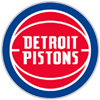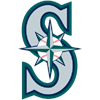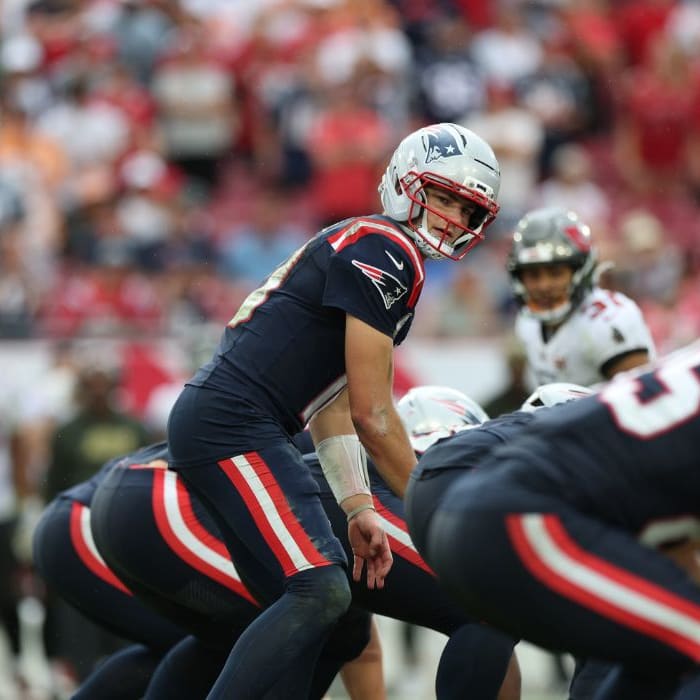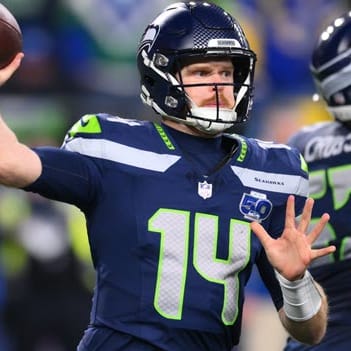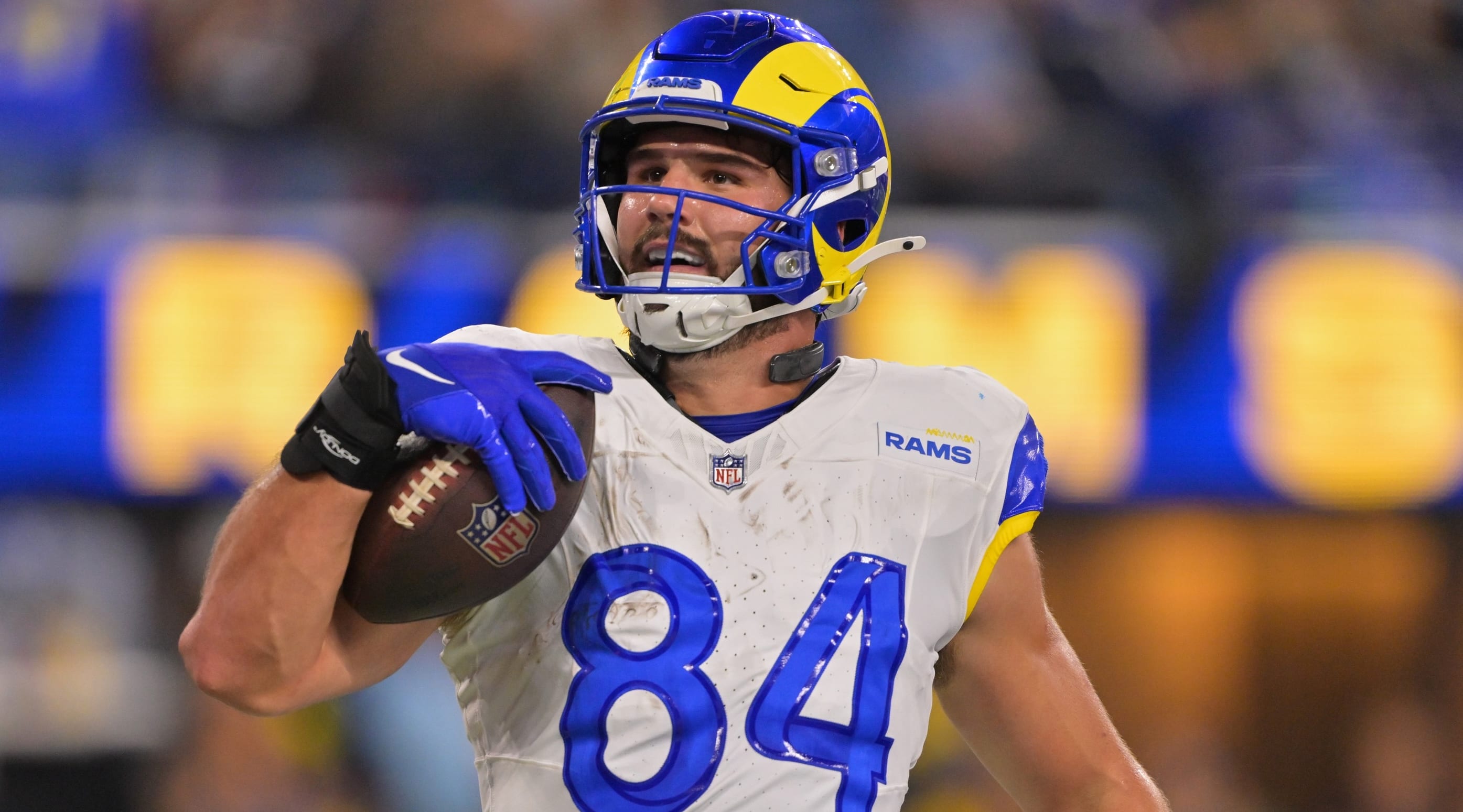As we begin the buildup to Thanksgiving Day football, the NFL injury report is "stuffed" with names of players nursing injuries to their thighs, legs and, in the case of Tampa's Baker Mayfield, "wings." Fortunately, every team is playing this week with no byes slated for the holiday weekend. As a result, plenty of options should be available to replace any player forced to the sidelines with an injury.
To stay up to date on injuries, be sure to monitor the latest fantasy football news and the NFL depth charts. In addition, use the weekly projections to see how this week's matchups shape up.
The Buccaneers quarterback suffered a left shoulder injury in the team's loss to the Rams on Sunday night. Mayfield spent the majority of the second half in street clothes with his injured arm in a sling. Testing on the shoulder revealed a low-grade acromioclavicular (AC) sprain, an injury better known as a separated shoulder.
The shoulder comprises multiple points of articulation that allow it to move with a high degree of mobility. The primary joint is the glenohumeral (GH) joint formed by the head of the upper arm bone (humerus) and a groove on the shoulder blade (scapula). The GH joint is a ball-and-socket joint, and the area Mayfield previously injured during the 2021 season. Mayfield, then the quarterback of the Browns, dislocated the joint, partially tearing the labrum in the process. Mayfield played through the injury before undergoing surgery in the offseason.
Thankfully, Mayfield's latest ailment involves a different joint. The AC joint is formed where the collarbone (clavicle) meets the scapula. The AC joint anchors the arm to the trunk of the body and helps with movement and force transmission. It is fortified by multiple ligaments and muscles. Sprains to the area have their own unique classification system that is based on the amount of damage sustained by these structures. The grade applied to Mayfield's injury suggests all ligaments and surrounding musculature remains intact. As a result, there is a realistic chance Mayfield is available to play against the Cardinals on Sunday. The shoulder can be braced, and modifications to his shoulder pads can be made for additional support to the area, meaning his availability could come down to pain management. Mayfield's progression throughout the week ahead will provide more insight on to a possible return to action for him. Teddy Bridgewater would start for Tampa if Mayfield is unable to play.
The Saints running back suffered a knee injury in the team's loss to the Falcons, though the injury is not considered season-ending. Kamara suffered a sprained medical collateral ligament (MCL) when taken down by linebacker Kaden Elliss in the first quarter. The MCL sits on the inside aspect of the knee and provides support during lateral (side-to-side) movement. The good news is the injury is not considered serious, and his medial meniscus appears to be intact. However, the veteran running back could still miss time with the ailment. Even a mild sprain can limit a running back, making normal football moves like cutting and running difficult. As a result, rookie Devin Neal becomes a top priority add on the waiver wire this week. Neal only rushed for 18 yards on seven carries against the Falcons but did bring in five receptions for 43 yards.
It appears the Bengals will welcome back Burrow Thursday against the Ravens after he missed nine games following surgery for a turf toe injury. Burrow's case is unique and worth monitoring, as it is uncommon for players to return in-season following this type of injury and treatment. A 2020 study failed to find a single case in which an athlete returned the same season as when they had surgery for a high-grade turf toe injury. The same study also showed most athletes who did eventually return to action following surgery, displayed a drop in postoperative performance. It wouldn't be surprising to see the injury impact Burrow's mobility, and I don't think he is a must start this week. He will need to put together a sustained stretch of good health and solid play before I would utilize him in most fantasy formats, even with the return of the previously suspended Ja'Marr Chase.
Turf Burns
J.J. McCarthy: The Vikings quarterback was placed in the concussion protocol after he self-reported symptoms on the flight back home following the team's loss to the Packers. As a result, he will need to complete the necessary return-to-play steps to play against the Seahawks in Week 13. There hasn't been a quarterback this season to suffer a concussion and complete the protocol without missing time, making it likely the second-year signal caller sits. Max Brosmer will start should McCarthy miss time.
Dillon Gabriel: Gabriel cleared the concussion protocol on Monday after missing Week 12 with the head injury. However, he will return to action as the backup quarterback, with Cleveland opting to stay with rookie Shedeur Sanders. Sanders finished his first start completing 11 of 20 pass attempts for 209 yards, one touchdown and an interception against the Raiders. He will now face a San Francisco defense that has surrendered an average of 21.9 points to opposing quarterbacks.
Tee Higgins: The Bengals wide receiver also is in the concussion protocol following Sunday's loss to the Patriots. Higgins' head stuck the turf hard late in the contest and he was quickly ruled out. It was unlikely he could have completed the protocol in time for Thursday's contest versus the Ravens, but the team has already proactively ruled him out for the game. Andrei Iosivas, Mitchell Tinsley and Charlie Jones will move up the depth chart to help Burrow and the freshly reinstated Chase.
George Pickens: The Cowboys listed their top receiver as a non-participant in Monday's walkthrough due to knee and leg injuries. Coach Brian Schottenheimer described the injury as a bruised shin and noted that Pickens was "sore." The ailments seem mild and it seems unlikely Pickens misses the team's Thanksgiving Day matchup with the Chiefs.
Rashee Rice: The top receiver on the team opposite Pickens' Cowboys is also nursing an injury, as Rice was limited during Monday's walkthrough. Rice is nursing a hamstring injury, though he has not missed any time. If Rice does suit up against Dallas, he will be carrying an elevated degree of injury risk. Hamstring strains have a recurrence rate of nearly 40 percent, with those making a quick return (within two weeks) particularly vulnerable. The matchup is favorable, but tread cautiously here, especially with the quick turnaround.










